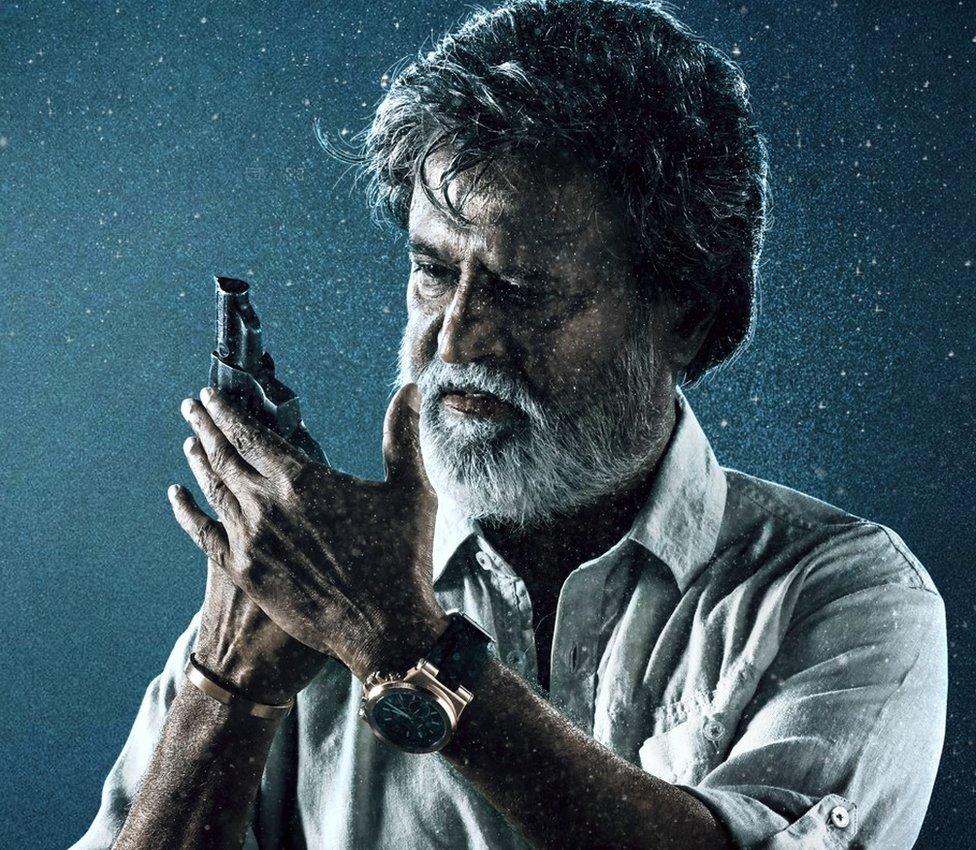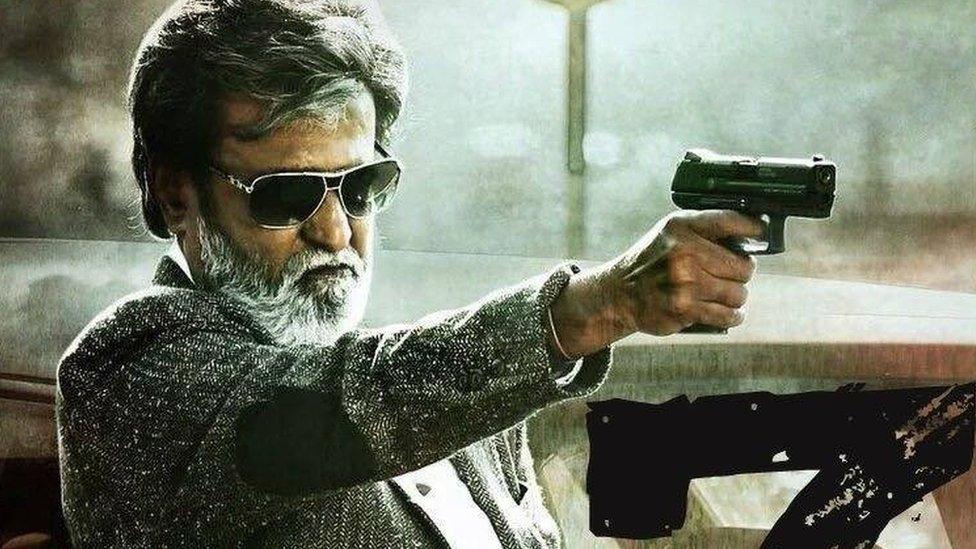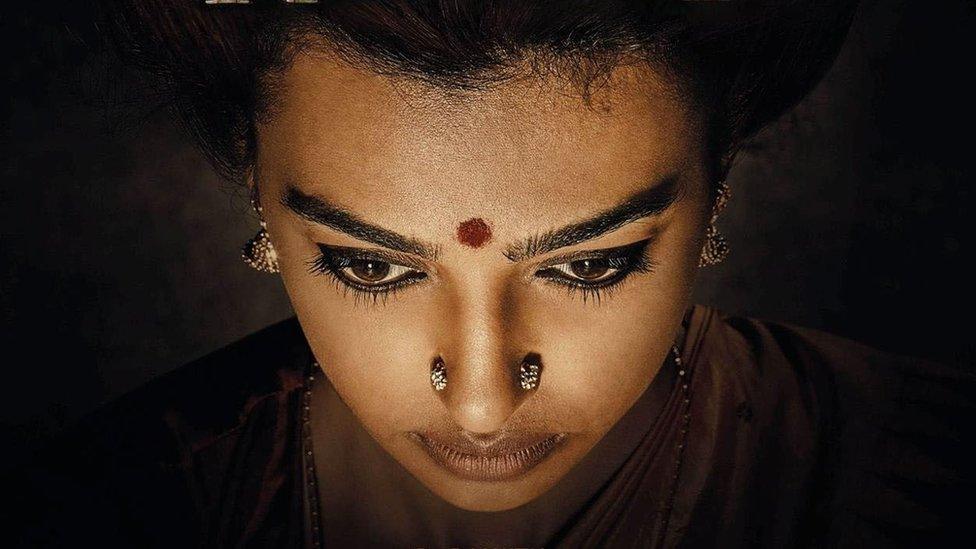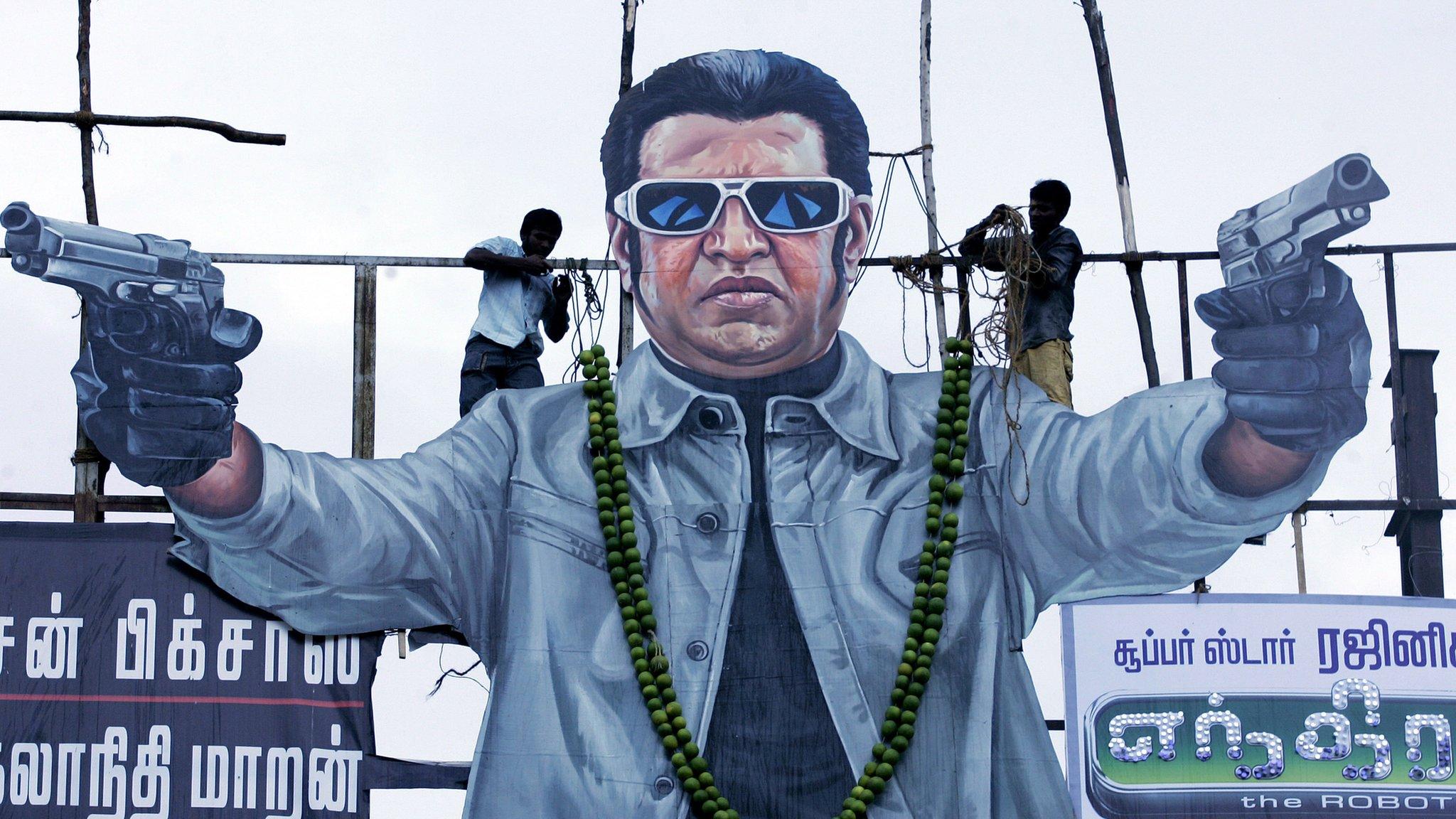Kabali: How Rajinikanth still packs a punch
- Published

The ageing superstar shows no signs of slowing down in Kabali
At 65, Tamil cinema superstar and a grandfather in real life, Rajinikanth, packs a mean punch in his new film Kabali, an action-packed gangster drama, which opened on Friday.
There are special effects and stunt doubles all right. But the ageing hero fishes a gun quicker than you can say Kabali; smashes furniture and sends villains flying across the air with lethal kicks, gives chase and hunts down the baddies with characteristic flair.
The thalaivar (the boss, as his fans call him) shows no signs of slowing down. The 150-film veteran even gives chase to the villain, played by Taiwanese actor Winston Chao, against the Petronas Towers, one of the world's tallest buildings, in Malaysia.
Kabali has all the ingredients of a Rajinikanth entertainer: heroics, smoking guns, bloody fight sequences, Malay and Tamil hip hop and rap music, lots of Tamil regional pride and romance. It also has the angry superstar delivering truisms in his trademark mocking style.
How Rajinikanth and Kabali mania swept India
Sporting a grey beard, Rajinikanth plays Kabali, a rubber plantation worker who walks out of prison in Malaysia after a 25-year term. He then turns against a group of gangsters who framed him to put him in prison in the first place.
Kabali battles the group, led by Chao, who plays a drug lord, and Tamil gangsters who run drug and prostitution rackets in the country.

He speaks for the rights of the Tamil migrants in Malaysia. He sets up a foundation to offer education and livelihood for the Tamil youth. His love interest is his strong and independent wife, played by the talented Bollywood actress Radhika Apte.
Director Pa Ranjith gets Rajinikanth to address issues of caste, class and race: the superstar is shown reading an English book written by a Dalit (formerly known as untouchables) writer; and he is attired in tuxedos and suits, a nod to the western sartorial style of Dalit icon BR Ambedkar.
Not impressed
"Black is power", states Kabali with characteristic swag in the film. "The dark-skinned Tamil is equal to all races; he is no longer a slave in the plantations of Malaysia but one who asks for equal opportunities with education and hard work."
But all critics are not impressed. There is very little in Kabali, says one, which sets it apart in tone and tenor from the star's recent outings. And the pace does slacken a little, and sometimes the actor actually looks tired.
"Rajinikanth's achievement, as always, is that he manages to hold the audience in thrall, external even when the film threatens to flag - this despite the fact that he is only peddling time-worn tricks," writes Saibal Chatterjee.

Bollywood actress Radhika Apte plays Rajinikanth's wife in the film
But fans are flocking to the film, and Kabali appears to be on its way to becoming another box office hit for the superstar. Even before its release - the film has been dubbed in Telugu, Hindi, Malay and Mandarin - it had mopped up $30m (£20m) in rights sales.
Because, in the end, Rajinikanth remains a larger-than-life superstar and a one-man cult.
"A lot of fans refer to him as God, or as someone who is beyond human desires. So many fans treat the star in ways that are not unlike how people in India treat gurus or spiritual leaders," says Rinku Kalsy, who made a documentary on his fans.
- Published6 May 2014

- Published10 October 2010